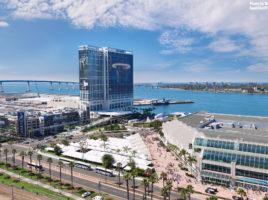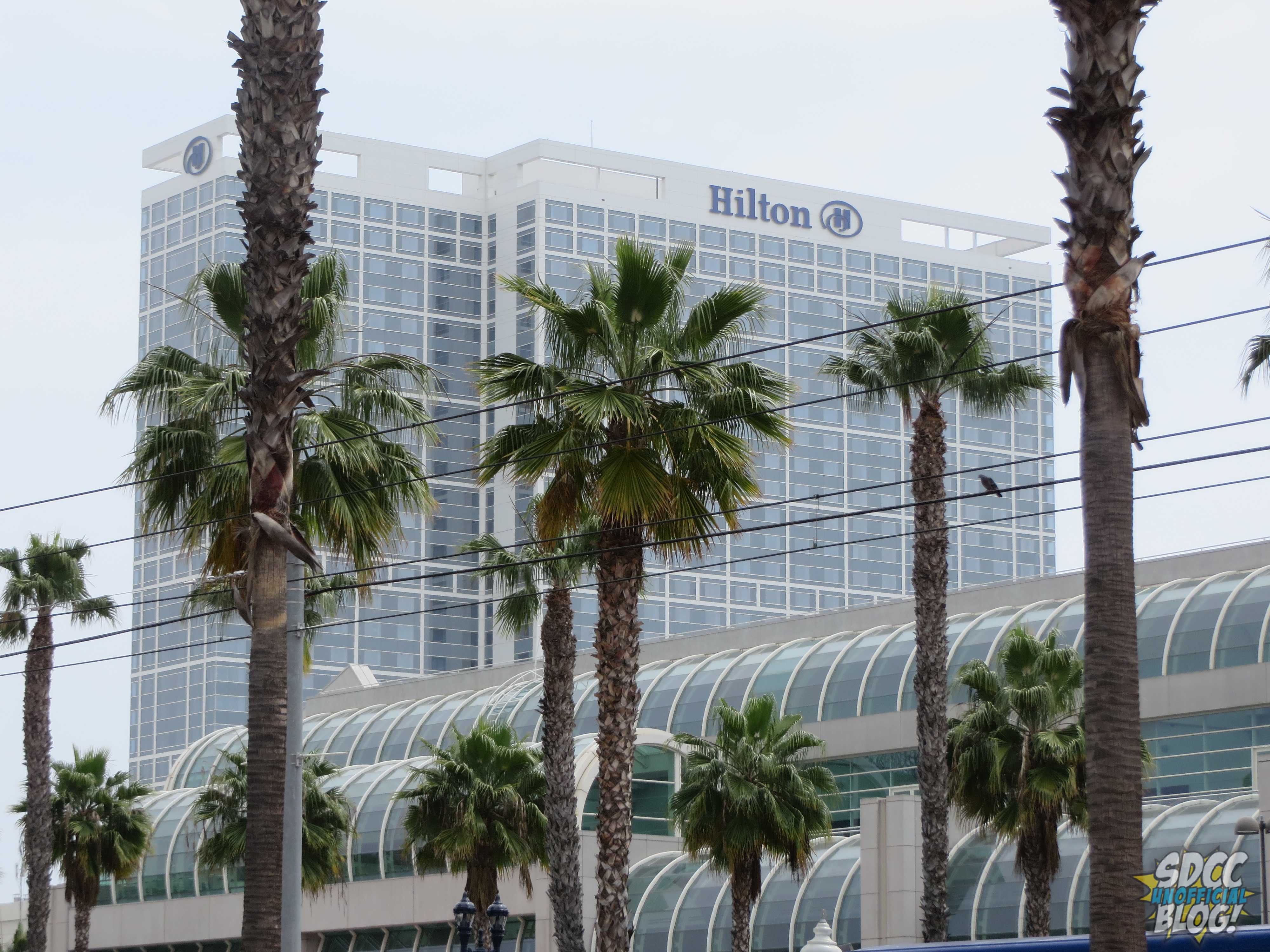 UPDATE: At 6:08PM PT on March 27, 2015, Comic-Con International issued this statement to us:
UPDATE: At 6:08PM PT on March 27, 2015, Comic-Con International issued this statement to us:
We’re obviously disappointed the hotel sale didn’t run as smoothly as we would have liked. Our attendees are very important to us and we have worked very hard to secure more room blocks and reduced rates at area hotels. We continue to strive to provide the best means to accommodate the growing number of people looking for lodging during the show. In fact, one of the major sticking points in our current negotiations to remain in San Diego are hotel rates. This incident has cast a shadow on our efforts but we are working with Travel Planners to ensure this type of situation does not occur again.
Previous:
For most (as some are still waiting on e-mails), the 2015 San Diego Comic-Con General Hotel Sale is finally over. Thousands of attendees are left to fend for themselves outside the system or wait for released rooms to open on April 8, and thousands now have a place to sleep. As for me, I got my #1 downtown pick.
And I don’t feel good about it. At all.
Because no matter which way you slice it, the entire general housing sale this year was not only a disaster, but a critical failure, on every single level.
As most attendees know by now, hotels for San Diego Comic-Con are given out similar to the way that badges used to be given out – a website launches at a certain time, in this case 9AM PT on March 24, 2015, and only the fastest survive. In the case of hotels, the website leads to a form, where you have to fill out information like your name, arrival and departure dates, select which hotels you want, how many people are in your room, and more.
Travel Planners, the company who runs the general hotel sale, then uses the timestamp that they receive your hotel submission to assign rooms. If when they get to your timestamp, your top choice is taken, they move on to your second choice. If that’s taken, they move onto your third, and so on.
Most years, anyone who submits this information after three minutes doesn’t get a hotel. Not just “doesn’t get a downtown hotel” (those are normally gone in roughly 90 seconds), but doesn’t get a hotel. That’s because, like with all things relating to San Diego Comic-Con, demand simply outweighs supply.
So the speed in which you can fill out your information matters greatly. But this year’s sale was skewed, to an almost ridiculous level – because unlike in previous years, the form had trouble loading. We took a reader poll, and although the 740 submissions represent only a fraction of the potential 130,000 attendees who may have been participating, the percentages haven’t changed much from 50 user answers to 740. Although it’s far from scientific, that implies that even with a much larger sample size, the results may not change that much. So, take from these numbers what you will.
Of those users, most – 23.99% – reported the form taking over a minute to load at all. The second most common load time was somewhere between 16-30 seconds (22.51% of users). And how many reported that it loaded straight away? 2.16%.
Yes, you read that right. Only 2.16% of users reported the system which determines their fate functioning as it should have from the start.
Does that sound like a success to you?

As we already know though, this wasn’t even the only issue, though it was arguably the most common. Some percentage of users – which according to our poll, was around 34.58%, or roughly a third of all users – got what we’ve dubbed the “bad form”. This form came with all kinds of issues, ranging from things like being unable to rank your six hotel choices as directed, to being able to submit your form even accidentally just by pressing “enter” at any given point, which potentially led to submitting without all of your information intact, a faster timestamp than you would have gotten otherwise, and other problems.

When I spoke to a Travel Planners manager early on Tuesday to find out what we should tell users to do (and more on this in a minute), he seemed surprised when I told him I’d seen hundreds of users reporting having a “bad” form. At the time, presumably, they didn’t realize just how badly this sale had gone, and how many users had been impacted, and he directed me to tell users to call, so they could take their information and contact them later about ranking their hotels.
An hour later, as Travel Planners probably began to realize just how many calls they were getting, they changed their tactics.
But to what, exactly, is something we can’t really explain, because over the next 48 hours, getting the same two answers out of Travel Planners representatives was virtually impossible. We began hearing everything from you’d be e-mailed to change your information, to some representatives still taking down names, to some telling people it was too late, and others telling people that there was nothing wrong at all.
@SD_Comic_Con Called them, it was very fast. They took my original hotel choices and are matching them to my original timestamp.
— Bex ❤🐾 🇺🇦 (@SaveTheFangirl) March 24, 2015
https://twitter.com/jennytronn/status/580418143446806529
@SaveTheFangirl @SD_Comic_Con I was told to wait for the email in 48 hours, you will then email them back with your original choices
— Steve Musolino Jr. (@stefanomjr) March 24, 2015
This was a theme that would continue, throughout the next 48 or so hours. E-mails will still go out on time (as promised, by March 26). E-mails won’t go out until Monday. E-mails will go out on Friday.
@SD_Comic_Con I just spoke with someone at Travel Planners who said that the confirmations may not go out until tomorrow or Monday.
— Rebecca Clark (@RCNY13) March 26, 2015
@RCNY13 @SD_Comic_Con Just read on the FoCCI forum someone called and TP said 5pm today (time zone?) Only thing we can do is wait and see.
— inside vs outside (@Intraspective) March 26, 2015
Just got off the phone with Ramon at Travel Partners. He says reservation emails likely won't go out till tonight or tomorrow. #sdcchotels
— Geek Girl Diva (@geekgirldiva) March 26, 2015
And round, and round, we went, with so many people reporting being told different things from Travel Planners.
Here’s the thing, though. Although the customer service reps at Travel Planners were the public face (or voice, in this case) to Comic-Con attendees, it’s mostly not their fault that they had an inconsistent message. Because they don’t make those kinds of decisions, they can only pass on information that’s given to them.
The problem is, then, that either both Travel Planners and Comic-Con International weren’t giving those employees that kind of information, or it was getting lost in translation, because things were changing minute-by-minute behind the scenes. Neither of those scenarios are acceptable, though.
Although we can almost picture how the conversation went behind the scenes — something along the lines of, “Yes, there were problems, but we think we can work very hard and keep our deadlines and the promised March 26 hotel reservations deadline” – it fails to address the main problems here. First is obviously that things went horrifically wrong in this sale. Unlike when the Member ID site crashed an hour before the Open Registration badge sale, when you could theoretically blame attendees for “waiting until the last minute”, this was not the fault of outdated browsers, ill preparation, or anything other than technical issues – plural.
Travel Planners attempted to solve the problem on Tuesday night by e-mailing only the users they believed were impacted. They asked them to fill out, in roughly 24 hours, a form to re-confirm your top six hotel preferences, and they would combine this with the rest of your form:
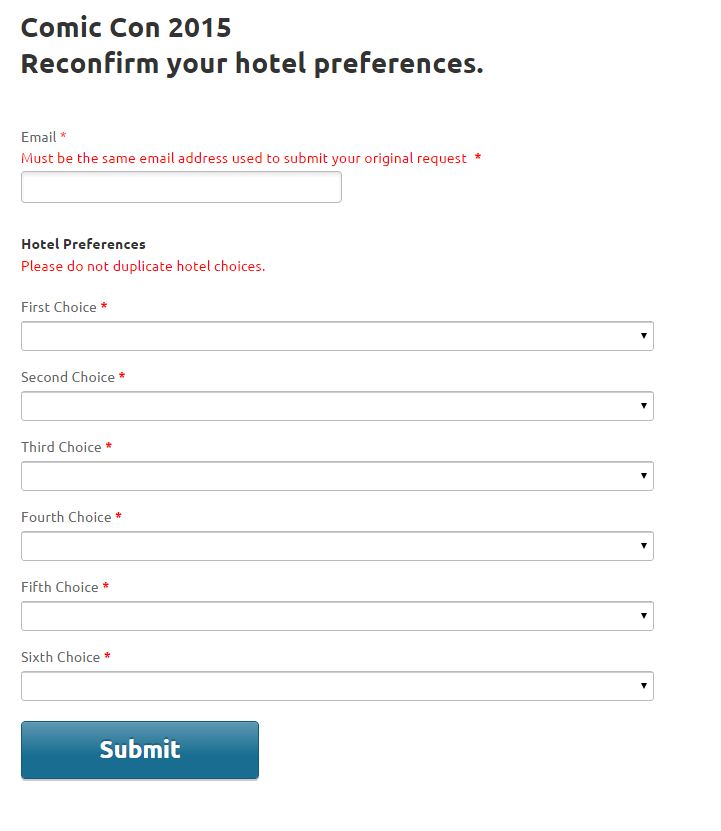
But it didn’t address a multitude of other problems: That many who hadn’t been able to rank their hotel rooms also hadn’t been able to give Travel Planners their basic information, such as departure and arrival dates or room dates; the lagging load time; how the confusion over the incorrect form caused many to take longer than normal to fill out their information. And additionally, some who had good forms received this e-mail. Some who had bad forms didn’t receive it at all.
After a confusing afternoon, around 3PM PT on March 25, recap e-mails of what users had selected began to go out. Some with the bad form, who had submitted a second time when either they submitted too early without all of their information, reported getting multiple e-mails. Some, like myself who had only submitted once, reported getting two e-mails with the exact same Reservation Request Numbers. The most common issue that we saw, though, was that several “bad form” people had that same missing information that Travel Planners had failed to collect the day before. These e-mails looked like this:
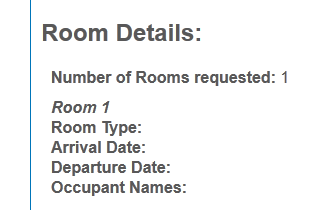
There was no explanation of what to do about it – either in the e-mail, or from Travel Planners through a statement, or Comic-Con International..
It wasn’t until the next morning, thanks to a tweet from a user in what had basically just become “let’s crowd-source our answers, since they won’t give them to us”, that we learned affected users should reply to the e-mail with the missing information:
@SD_Comic_Con update on incomplete forms: if you got yout reservation request email with blank room details, reply to that email (1)
— Dai (@Aqualice) March 26, 2015
Travel Planners either would not, or could not, take this information over the phone. But you had to call to find out this information. Anyone seeing a problem?
It’s also worth noting that, at least in the case of one member on our team who had blank information due to a bad form, that despite receiving a reply e-mail that his information had been updated, both his departure dates and room type were wrong in the final confirmation. Here’s the response he got that someone, somewhere, at least saw his information, even if it never got changed:

As March 26 wore on, it became increasingly obvious that Travel Planners was not going to make any kind of a statement, and that e-mails were expected to go out on schedule, regardless of what had happened, how many problems people were still reporting, and the unlikelihood that they could address all of those issues within the few hours remaining.
And then, as if timed perfectly to when their phones lined closed, Travel Planners began sending out hotel confirmation and rejection e-mails.
The results were mostly all over the board. Some who reported very fast times received no hotels, some who reported much slower times reported downtown hotels. Some, like our bad form staffer, wound up with two hotels, but with wrong occupancy and arrival and departure dates.
Maybe you could claim that’s due to discrepancies between time you hit submit on your computer and the time that Travel Planners receives the e-mail – but it does nothing to explain things like these:
https://twitter.com/strongpieces/status/581305055325921280
@SD_Comic_Con Got confirmation for Embassy Suites San Diego Bay… but the occupant names are complete stranger names to me? Also (con.)
— Swords (@Swords761) March 27, 2015
https://twitter.com/non_sequiturs/status/581334756966567936
@SD_Comic_Con @Swords761 I had the same thing.. my second occupant no idea who she was, but switched the name to the right one
— stephanie (@thisisstephwoj) March 27, 2015
The most obvious reason for all of these issues is that Travel Planners, despite presumably working around the clock, simply couldn’t fix everything that needed to be fixed by the end of March 26. And honestly, we don’t see how they could have.
The minute that Travel Planners realized just how far-spread the problem was (and they had to realize fairly early on, because one of the few consistent messages we did hear from Travel Planners representatives was that they were swamped with calls), they should have scrapped the entire sale, and held a re-do. Given the wide discrepancy in load times, and the multitude of other problems, and the joke of a conclusion last night, this would have been the only fair solution.
However, even if Travel Planners felt they couldn’t make that decision because they’d promised CCI that they would get hotel reservations out to everyone by March 26, then Comic-Con International should have been the ones to step in and make that decision. They hired Travel Planners, and there’s no way that they don’t hold some kind of power over their own hotel sale. Yet they didn’t make that call.
And actually, they didn’t have much of anything to say – at least publicly – on the matter.
Instead, on the day of the General Hotel Sale, the non-profit company offered only one tweet: A tutorial for how to draw a cartoon bat.
You Can Draw a Cute Bat with @katiecandraw. #ToucanBlog http://t.co/ED36IdJV24
— San Diego Comic-Con (@Comic_Con) March 24, 2015
On Thursday, March 26 – the day that e-mails were slated to go out with hotel selections, despite hundreds of users still reporting issues with information in their confirmation e-mails being wrong, not getting confirmations, and more, CCI showed off a brand new billboard for their other convention, WonderCon Anaheim.
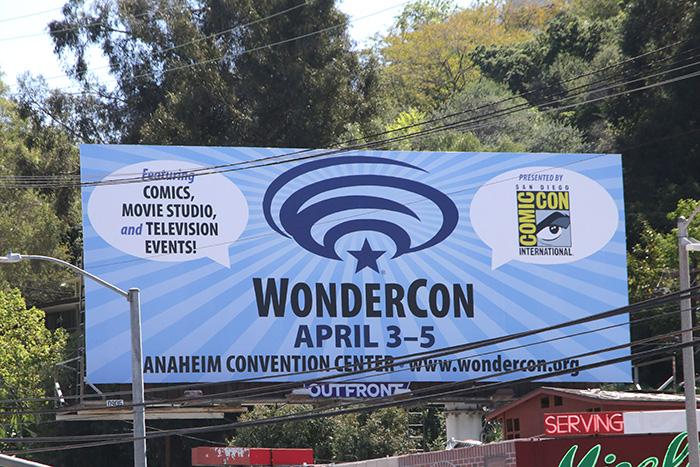
Rather than commenting on issues affecting literally tens of thousands of their own attendees, they thought the more important message was about their own marketing efforts.
We reached out to Comic-Con International on March 25 for comment, but as of press time, have not heard back. [UPDATE: Comic-Con International issued a statement to us later in the day, which can be found at the top of this article.]
You could make the argument that because Comic-Con International doesn’t directly run the hotel system themselves, they are absolved from any sort of responsibility in this matter. But that’s really not the case, and we’ve seen them take an interest in other sales – namely, badges. In 2011, when the company that they’d switched to, TicketLeap, crashed during the badge sale, CCI made the decision to move the badge sale to another date. Although in that case, users had been sitting trying to refresh for hours, not seconds, the end result was the same: The sale didn’t work as expected. The solution, though, was vastly different.
So why didn’t they make the call in this case? Is it because badges is the only sale that directly impacts Comic-Con? Is it because they decided an arbitrary deadline was more important than getting it right?
That’s something that only Travel Planners and Comic-Con International know. And one thing’s for certain: they don’t seem to want to say.
It’s been a very bumpy 72 hours (yes, really, just 72 hours!) of attendees being misinformed, left without guidance, and problems down the line. Although it’s only been three days, in this day and age, information flows lightning fast, and the sheer amount of misinformation pouring out from both Travel Planners and the internet virtually demanded some solid, real information from a credible source. And unfortunately, no one proved up to that challenge. In the world of San Diego Comic-Con, we all lost this battle.





